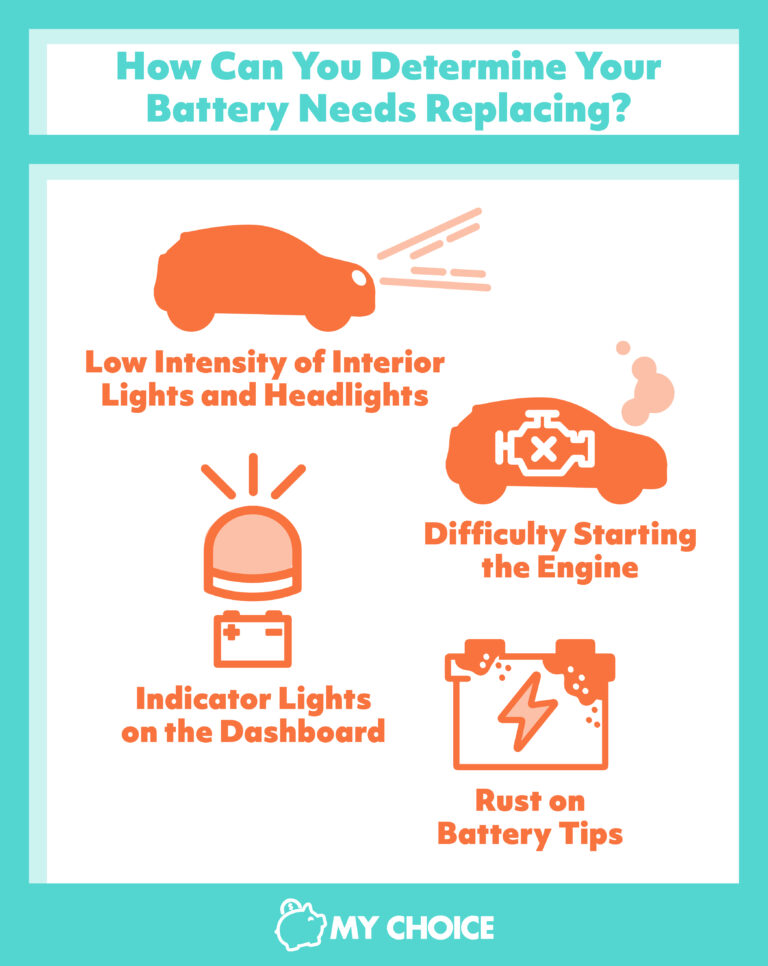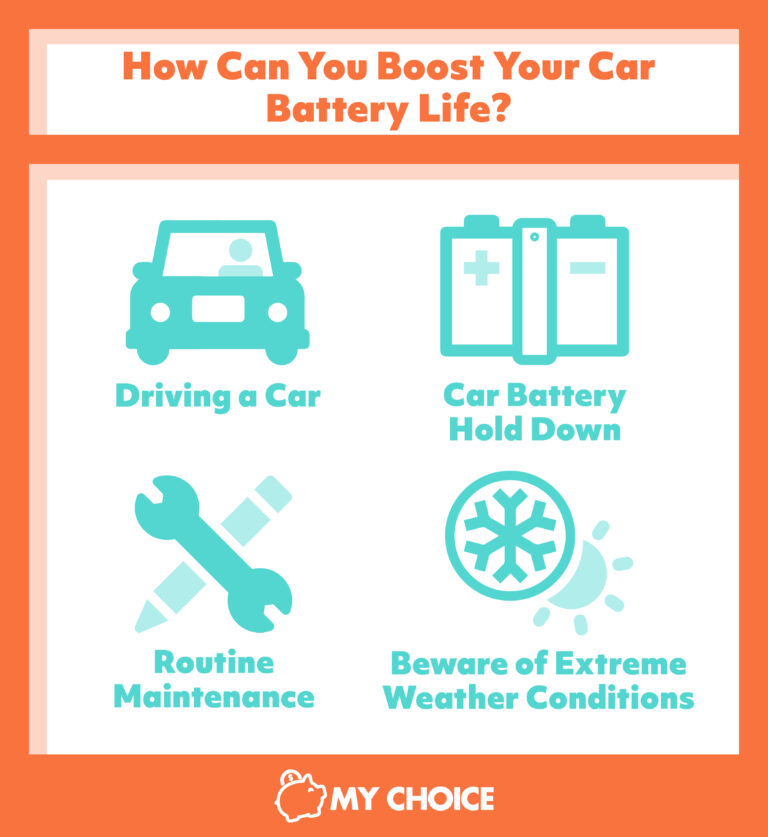
Have you ever wondered how often you should change your car battery?
Surely you don’t really think about it that much, unfortunately when you do its often because the battery has run out and you have to figure out how to get it started again.
Today we will share some recommendations in order to keep your car battery in the best condition, so it lasts longer and above all, you know when you should change it.
The Importance of Your Car Battery
The car battery is an integral part of your vehicle’s operation, it provides the necessary energy to start the engine; but it is also responsible for providing the power to other electric parts of the vehicle to work, such as the car display, lock, headlights, windows, windshield wiper, and of course, if your battery dies you will not be able to move your vehicle without some form of assistance.
Batteries are energy accumulators and work thanks to a chemical process, they are charged by taking advantage of the kinetic energy produced when the engine is on or even while the car is in motion.
However, this power is not unlimited, most car batteries will last four years or so when used consistently and for a long time. Replacing a car battery can cost anywhere from $70 to $150 depending on type of vehicle and where you get it replaced.
What Affects the Lifespan of a Car Battery?
There are several reasons why the car battery can fail, but the most frequent are these four: extreme temperatures, frequency of use, short trips and age of the vehicle.
- The great Canadian winter and its extreme temperatures not only affect your tires, but its also one of the main factors that affect the life of the battery since the cold can cause your battery to lose starting power.
- Many drivers believe that when a car is turned off it does not consume battery power, this is not correct. Certain systems, such as alarms, locks or “keyless-go” and navigation functions, need electricity even when the car is not running, and all this contributes to the discharge of the battery.
- A common question is, how long does a car battery last without driving? The answer is, that when the owner of the car does not turn it on repeatedly, the battery does not get fully charged. The battery has a negative energy balance.
- As the vehicle ages, the power of the battery can be reduced due to corrosion, sulfation and the passage of time. These aspects make proper charging difficult.
How Can You Prevent Battery Failure?
The good news is that you can follow our recommendations below to extend the life of your car battery and hopefully avoid it dying:
- Perform preventive maintenance on your battery; like checking the battery connections, making sure the cables are in good working operation, and if you take your car for a periodic service, ask them to check the voltage so that you know its state of charge.
- Turn everything off when the engine is not running, this is one of the main causes when it comes to a discharged car battery; this happens wwhen you have the radio on, lights on etc.
- If you live in an area with extreme climates, do not leave your car outdoors for a long time, the ideal temperature for battery is between 5º and 35ºC.
- Do not leave your car off for an extended period of time, if you hardly use it, it is recommended that you turn it on for 5 minutes at least once every 10 days, so that the battery works and does not lose its ability to accumulate energy.
- Use the battery recommended by each manufacturer, this is indicated in the user manual of your vehicle, you will avoid spending more and the ideal battery will last longer.
How Can You Tell When Your Car Battery Needs Replacing?
You should pay attention to the possible factors that indicate that it is time to replace it, such as:
- Difficulty starting the engine
- Low intensity of interior lights and headlights
- Rust on battery connections
- Indicator lights on the dashboard

How Can You Boost Your Car Battery Life?
The average life of a car battery is between three and four years. However, there are a variety of factors that can affect its lifespan as mentioned above.
Driving Habits
Short trips (less than 20 minutes) can shorten the life of your vehicle’s battery. Short car trips don’t give your car’s charging system enough time to fully recharge your battery, so take longer trips from time to time to give your battery a chance to recharge.
Batteries in vehicles parked for long periods discharge naturally. If you won’t be using the car for a while, disconnect the car battery or remove it completely. If you don’t want to remove or disconnect the battery, use a trickle charger, which is designed to keep a battery at a constant charge level over a long period of time.
Weather conditions
Extreme temperatures are one of the most important factors in determining the average battery life of a car. In extremely cold temperatures, consider using a heated blanket or electric battery blanket to keep the battery warm and make starting the vehicle easier.
In extremely hot weather, keep your car in a garage or in the shade as much as possible to reduce battery deterioration.
Routine Maintenance
Have you ever cleaned your car battery? Corroded batteries weaken their charge and reduce their lifespan. Keep corrosion under control by using a mixture of baking soda and water to clean the battery terminals. Rub the mixture into the terminal with a toothbrush, then wipe off excess moisture and any grease or dirt.
Batteries don’t usually go bad overnight, so testing your battery regularly will tell you if it’s not producing the amount of amps it should.
Ensure a Strong Foundation
Check the car battery holder regularly to make sure it is securely fastened, and make sure all cables are securely fastened as well. Missing or loose anchors can shorten battery life due to increased vibrations, which could cause internal battery parts to break down.

What Can You Do If Your Battery Dies?
If at any time the battery of your car discharges you have two options:
- Pass energy through another car: Often referred to as getting a “jump” from someone else’s car, this is one of the most common techniques to feed the discharged battery with energy from another car. For this, it is necessary to have a pair of jumper cables; these must be used to connect both batteries together. Once wired, both vehicles must be turned on and wait a few minutes for the alternator to charge the battery. After this process, you must remove the cables in the reverse order in which you placed them.
- Go to the nearest mechanic or car workshop: If you have a nearby mechanic or similar, you can go there to get some assistance when it comes to a recharge or replace the battery if required.
Finally, remember that there is nothing like maintenance and being prepared, so check your vehicle constantly, and make sure to change the parts before they reach their anticipated shelf life.
Does Car Insurance Cover Battery Replacement or Failure?
When it comes to car batteries, insurance policies usually don’t cover this type of replacement since it’s considered a general maintenance item. However, you can check with your car insurance provider to request coverage in case the battery fails sooner than expected. Insurance providers also usually have a roadside assistance program that you can add-on to your policy in case your car fails on the road.








